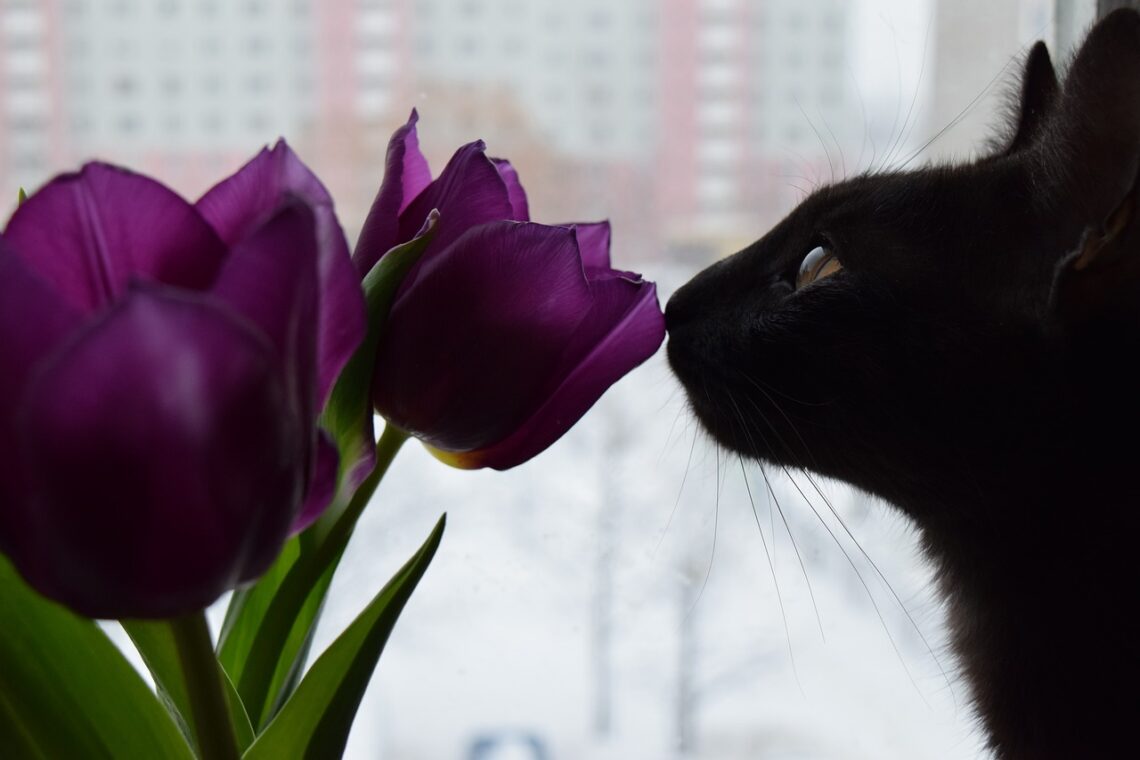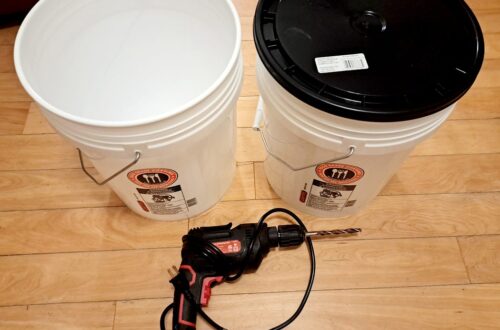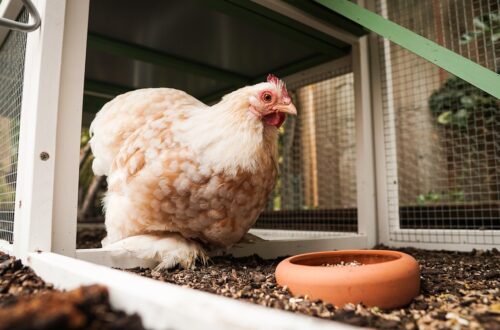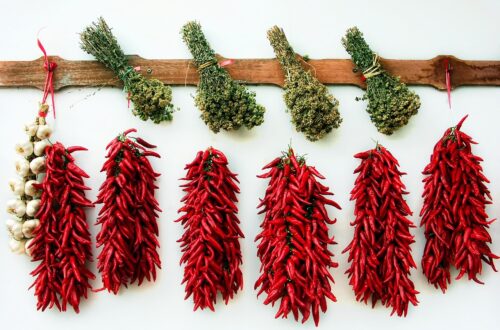Skip toxic plants and use these dog and cat safe flowers for your Valentine’s Day bouquet instead!
On average, Americans spend over 26 billion dollars every year on Valentine’s Day and a lot of that money is used to pick up flower bouquets for our sweethearts. However, many of the plants that are found in traditional flower bouquets are toxic if ingested… a fact that’s particularly problematic if you have pets at home that love nibbling on greenery!
In 2021 alone, the ASPCA Poison Control Center handled over 400,000 cases of pet poisoning and approximately 20% of those cases were caused by the ingestion of toxic plants. Cats are particularly sensitive to certain plants, but if a plant is toxic to cats, there’s a good chance it isn’t safe for dogs either. Unfortunately, most Valentine’s Day bouquets and houseplants don’t include any information about whether or not plants are toxic and unsuspecting pet parents bring toxic plants into their homes as a result!
As a pet parent myself, pet safety is important to me and so I wanted to put together this guide on dog and cat-friendly flowers to help pet parents this Valentine’s Day. Valentine’s Day is, after all, nearly synonymous with bouquets of flowers and indoor pets are more likely to be exposed to new plants around this time of the year. Until flower sellers begin labeling plants as “toxic to pets,” it is up to us pet parents to stay vigilant about the plants we bring around our furry friends!
Affiliate disclosure: As an Amazon Associate, I may earn commissions from qualifying purchases.
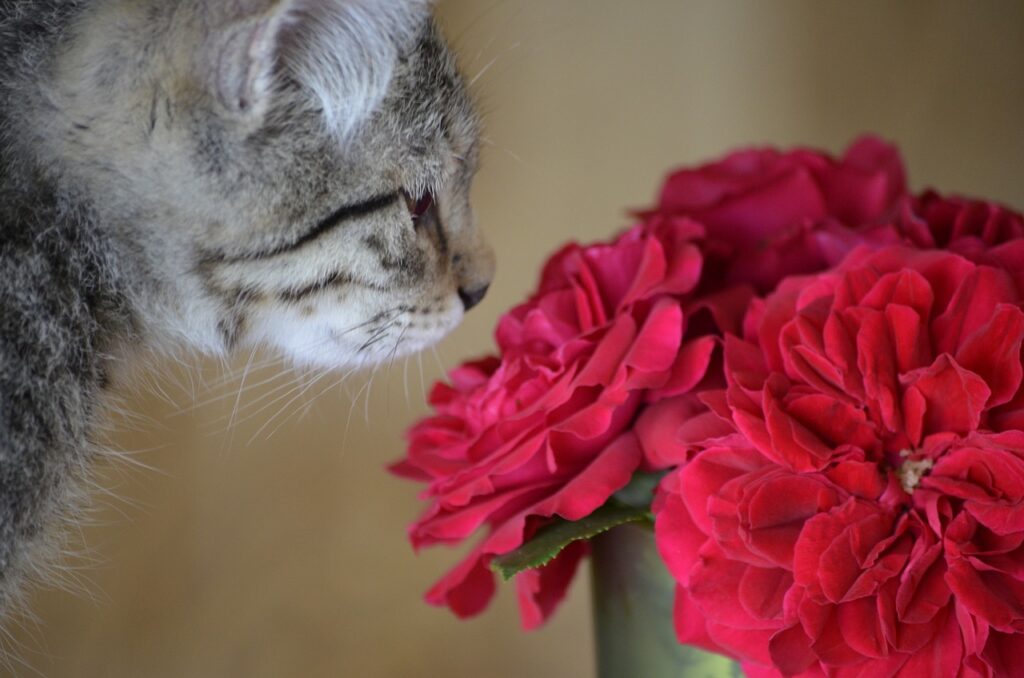
5 Valentine’s Day Flowers That Are Cat Safe and Dog-Friendly
While many common Valentine’s Day flowers aren’t safe for pets, there are still plenty of stunning blooms to use in your bouquet. Below are 5 flowers not poisonous to cats or dogs that are recommended for pet-friendly homes!
Note: While these plants are non-toxic, pets can still get ill if they eat a lot of them and some store-bought flowers may be treated with pesticides. For pet safety, it’s always advised to keep plants out of reach of curious kitties and hungry canines.
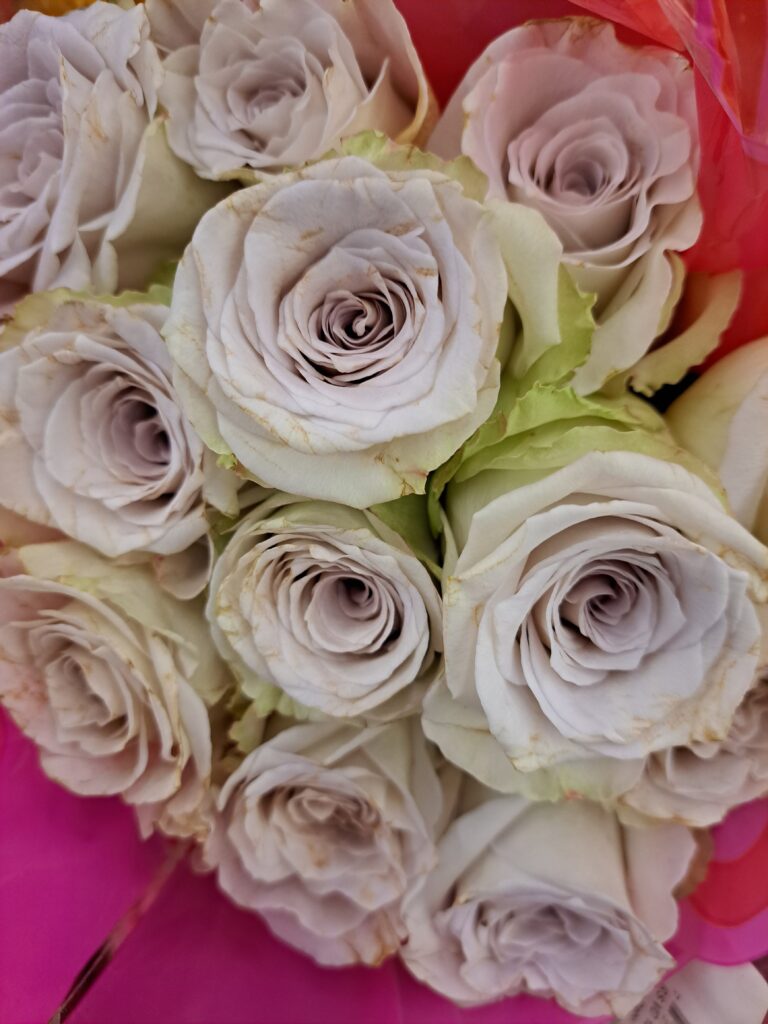
1. Roses
Roses are a classic choice for Valentine’s Day, but they’re also one of best flowers to use in bouquets if you’re worried about pet safety. Roses of any color or size are non-toxic to cats and dogs, and many rose varieties have deliciously heady scents too!
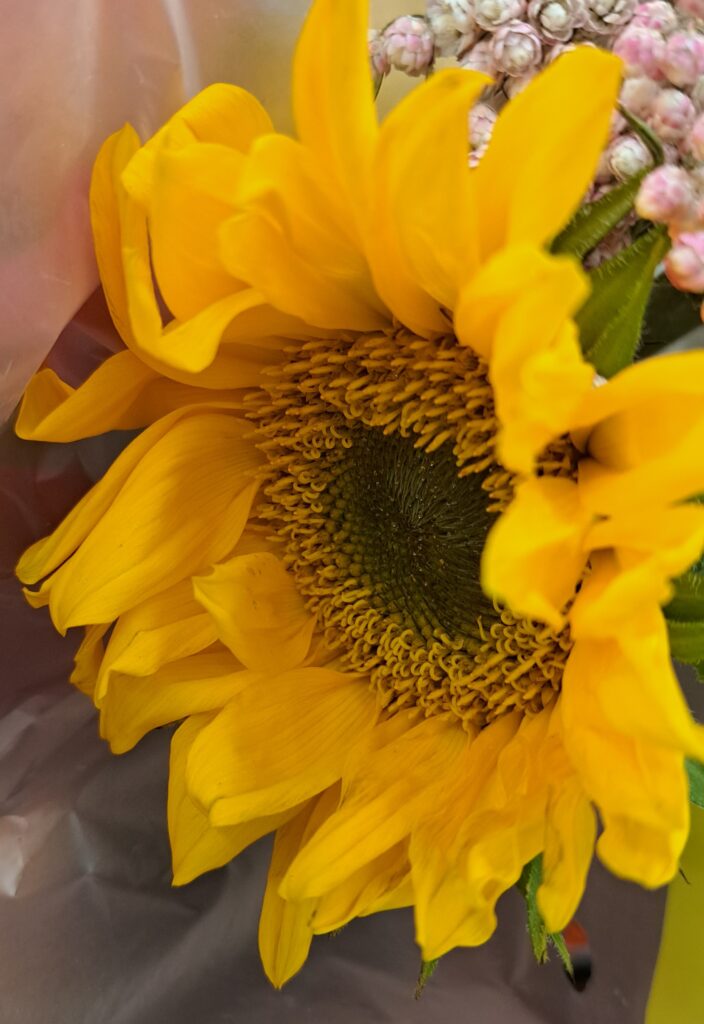
2. Sunflowers
Sunflowers are one of the happiest looking plants in bouquets and they’re also pet safe. In Valentine’s bouquets, sunflowers add an unexpected pop of color and they look particularly striking when paired with purple flowers.
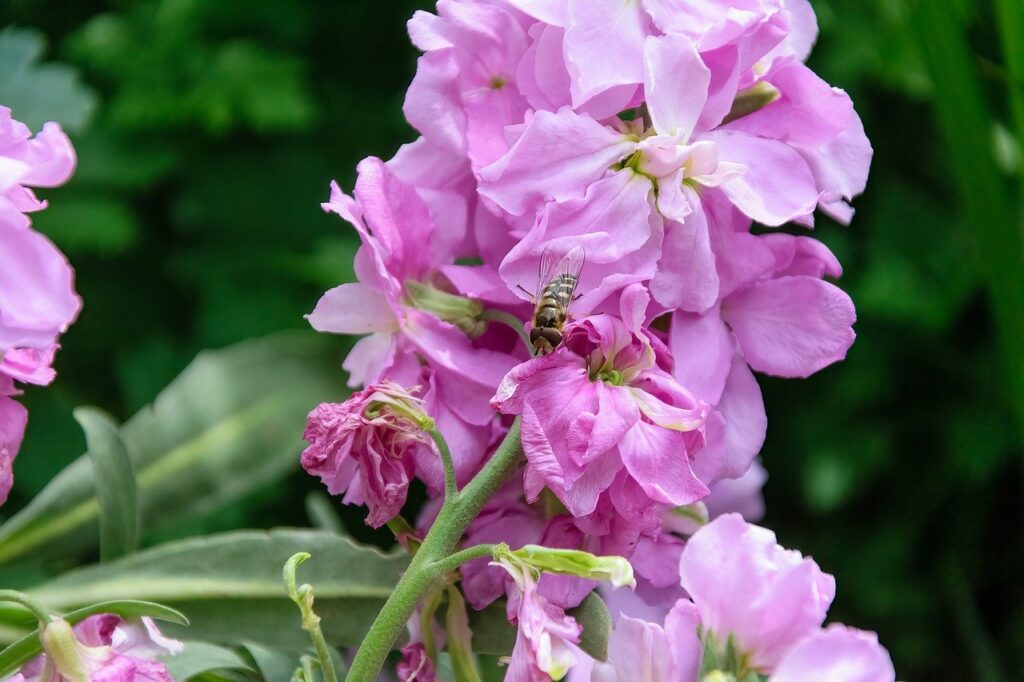
3. Stock
Stock plants have an old timey vibe and they come in tons of different colors to suit anyone’s tastes. They’re also non toxic flowers to cats and dogs and they’re easy to come by at most florist shops.
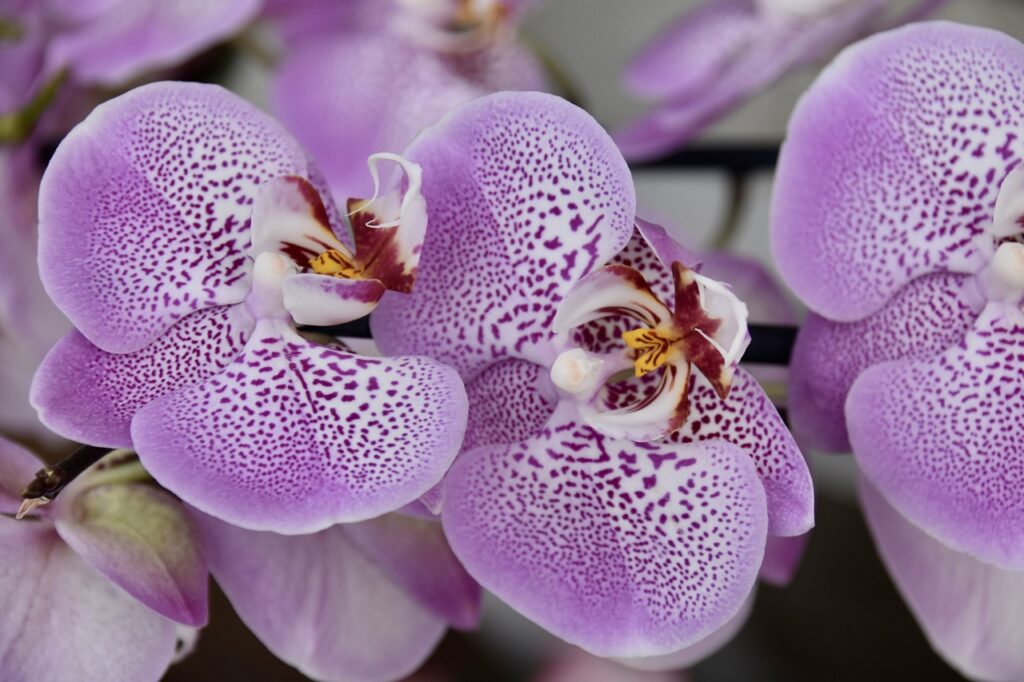
4. Moth orchids
Orchids may be sold in bouquets or as potted plants, but either way, they’re OK for furry friends. These tropical beauties come in a range of colors and orchid plants are easier to grow than many people think! If you decide to gift a living orchid, tell your sweetie to keep the plant in bright, indirect light and water it about once a week to encourage more flowers to bloom.

5. Gerbera daisies
Another option for Valentine’s flowers that are not toxic to cats or dogs, gerbera daisies (also known as Transvaal or Gerber daisies) have all the cheery charm of sunflowers, but they come in even more colors. Like orchids, gerbera daisies may be included in bouquets or gifted as living plants and they’re easy to care for indoors.
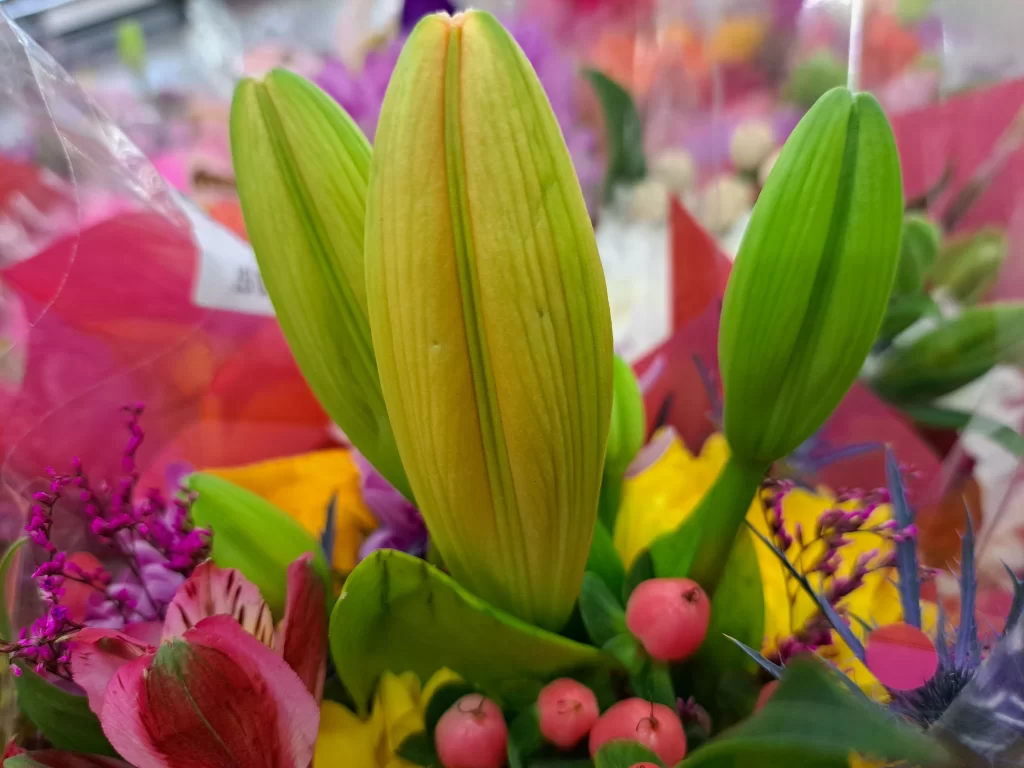
9 Common Valentine’s Day Flowers (and Fillers) That Are Toxic to Pets
There are many toxic plants and flowers in the houseplant and floristry trade and it’s important to do your research before bringing unknown greenery or blooms into your home. For this article, I poked around in the Valentine’s Day bouquets at my local store and noted some of the flowers that I saw that aren’t safe for pets. However, there are other plants to be aware of and the ASPCA has a plant safety list if you’d like to learn more.
Note: Plants that aren’t safe for cats and dogs vary in toxicity levels — some plants cause severe indigestion and vomiting, while other plants can cause rapid organ failure and death. If you suspect that your cat or dog has ingested a dangerous plant, call your vet immediately or stop by the emergency vet. Plant poisoning is nothing to mess around with and the sooner you have your pet treated, the more likely it is that your furry friend will recover.

1. Lilies
Lilies are one of the most well-known toxic plants for cats, but they aren’t safe for dogs either. Unfortunately, lilies (including calla lilies and Easter lilies) are often included in seasonal bouquets and they’re featured in Valentine’s displays too.
All parts of the lily plant are poisonous to pets, including the flowers and leaves. In fact, this plant is so toxic that pets can develop fatal kidney failure if they brush against a lily flower and lick the pollen off their fur! Because of the risks, I personally never bring lilies into my home and I only grow them in my garden.
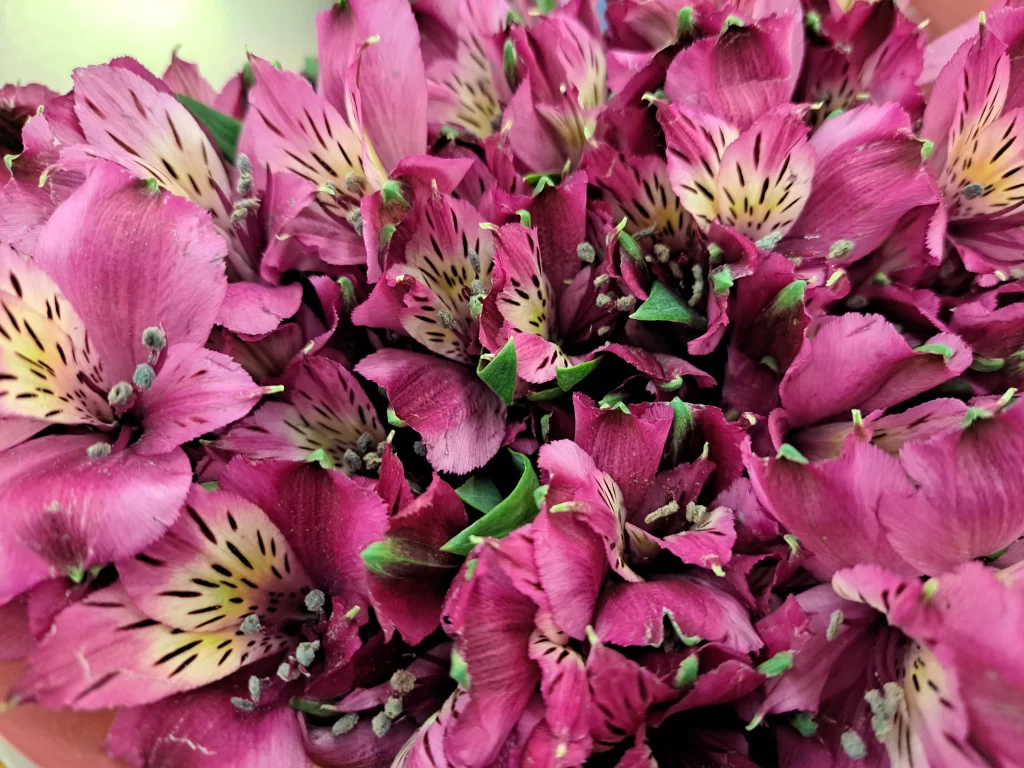
Note: When I was poking around bouquets, I noticed that both true lilies and Peruvian lilies were commonly featured in Valentine’s arrangements. Unlike most other lilies, Peruvian lilies are listed as non-toxic by the ASPCA, but they can still cause intestinal distress to pets.

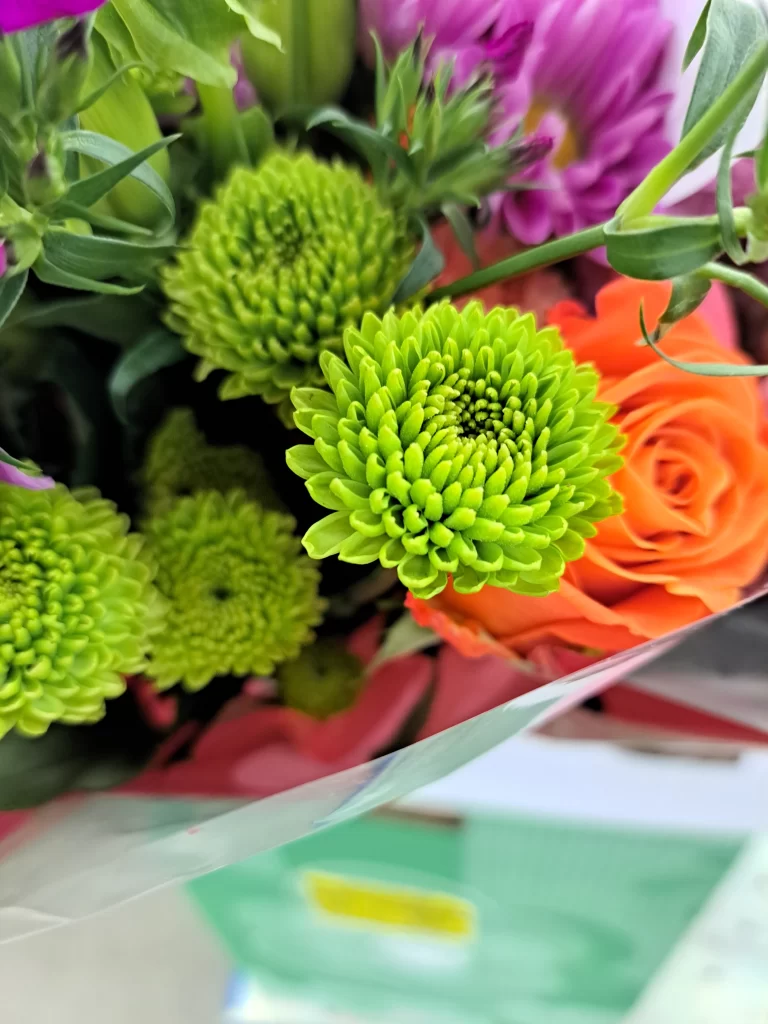
2. Mums
Mums come in a rainbow of colors and they make fun additions to floral bouquets, but they aren’t safe for pets. If you like the vibrant look of mums, you may want to try pet-safe Gerbera daisies instead.

3. Larkspur
Larkspur is frequently grown in outdoor gardens, but it also finds its way into Valentine’s bouquets. Stock plants have a similar appearance to larkspur and they’re a better choice than toxic larkspur if you have pets around.
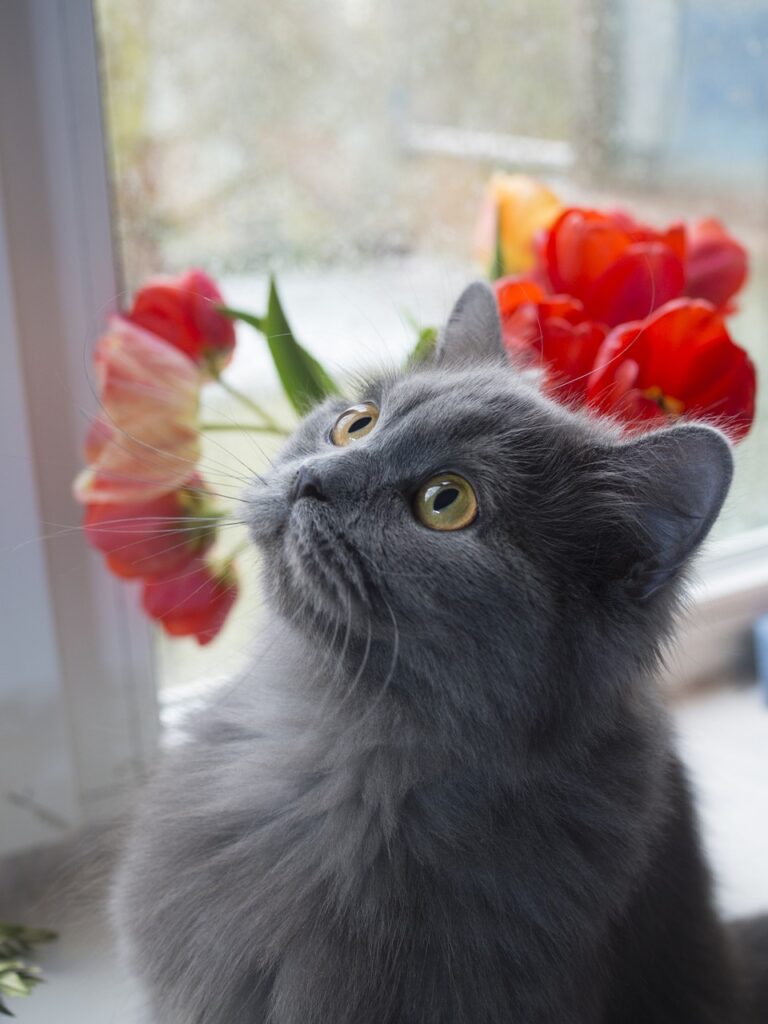
4. Tulips
Tulips are more commonly associated with Easter than Valentine’s Day, but pink, red and white tulips are sometimes gifted to sweethearts too. What many people don’t realize is that tulip are actually members of the lily family too and tulips (and their bulbs in particular) aren’t safe for cats or dogs!
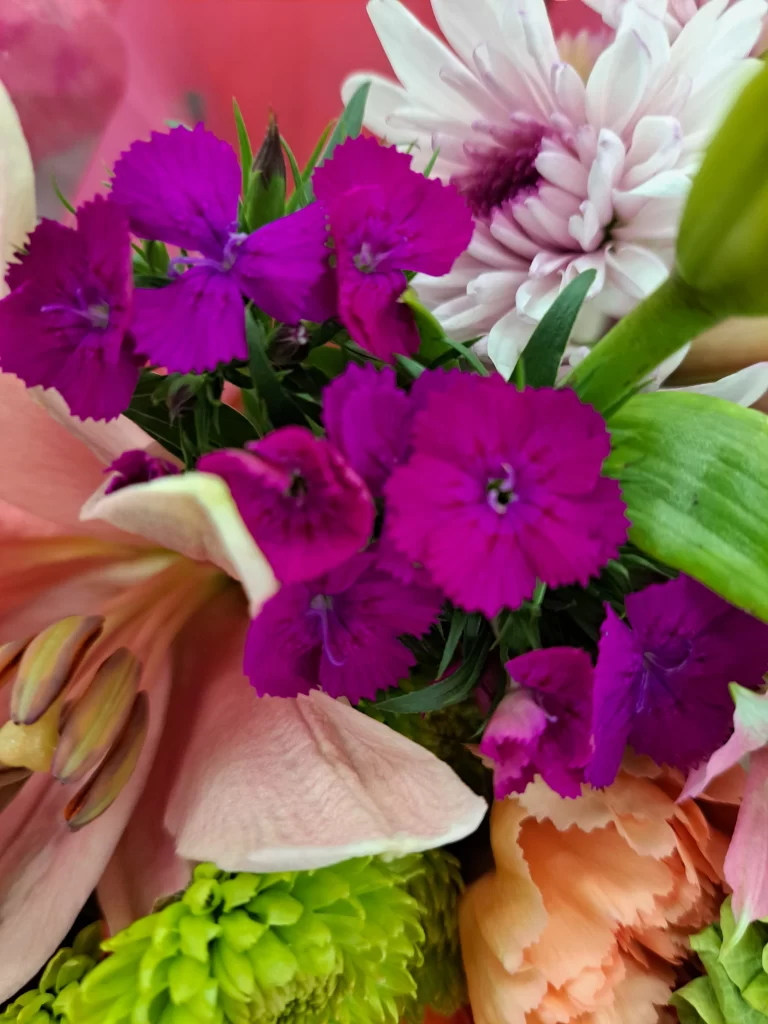
5. Dianthus or Carnations
Carnations (aka dianthus) are frequently used as a filler flower and they’re grown in flower gardens too… but these plants aren’t good for pets. Gerbera daisies are better options if you have pets around and they offer all the bright color you’d expect from dianthus blooms!
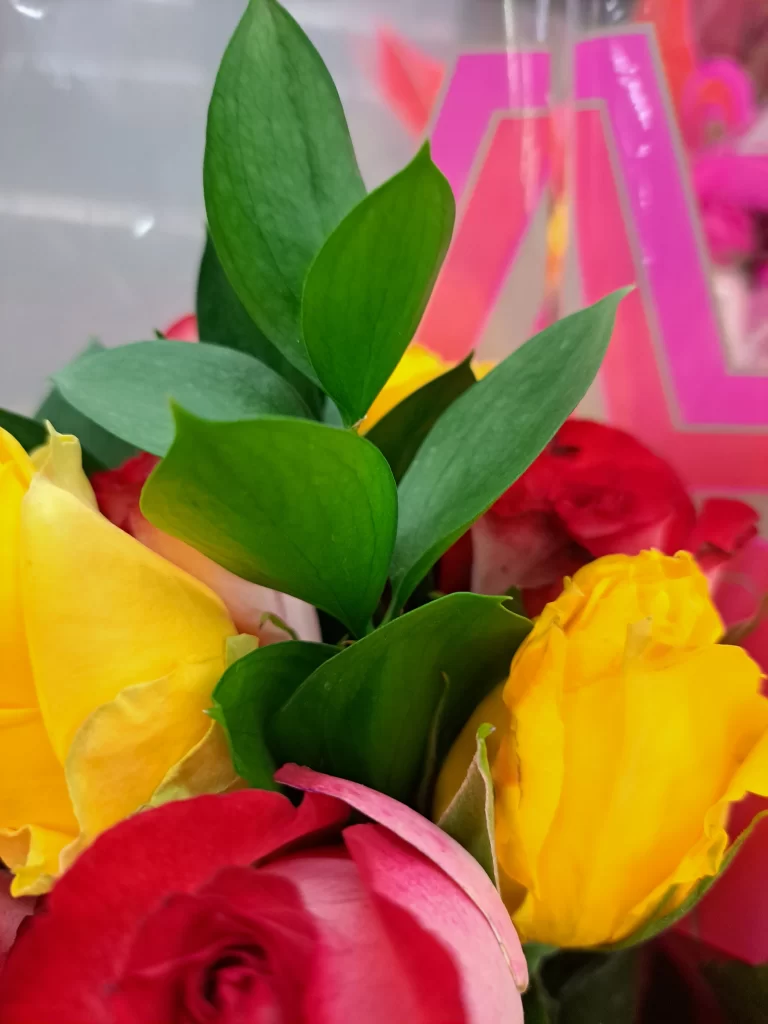
6. Ruscus
Ruscus plants and I have beef. A few years ago, one of my kitties nibbled on a ruscus plant and I spent hours in the pet ER as a result (in fact, that memory is why I’m writing this article!) Luckily, my mischievous beast was okay, but my wallet was not and I spent a pretty penny on vet bills.
Ruscus plants are typically used as foliage fillers in bouquets, but they’re actually members of the lily family and they’re toxic to pets. Learn from my mistake and steer clear of these greens if you have cats afoot!
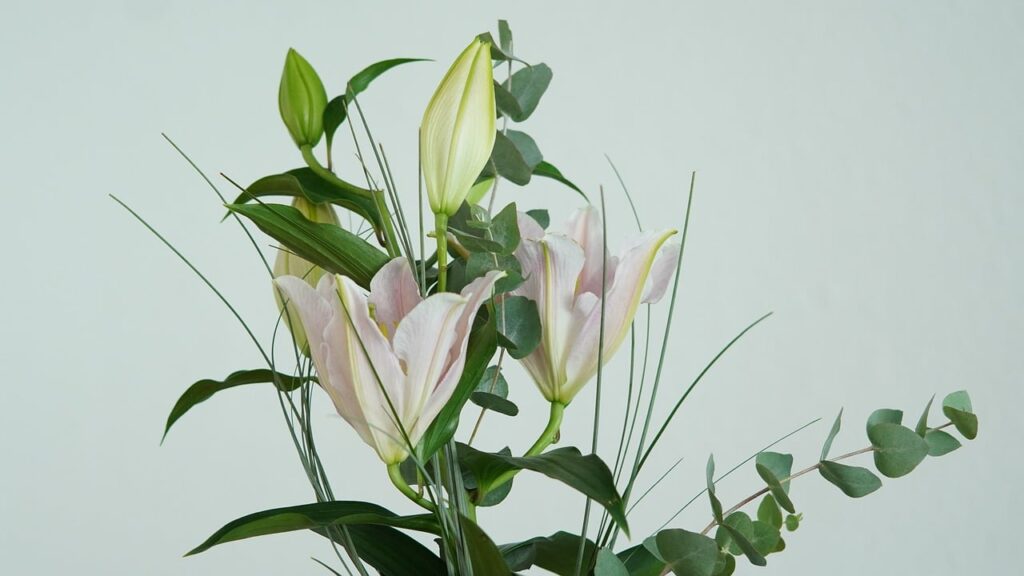
7. Eucalyptus
Eucalyptus smells divine and its rich fragrance has earned it a place in the floristry trade. But it’s toxic to pets!
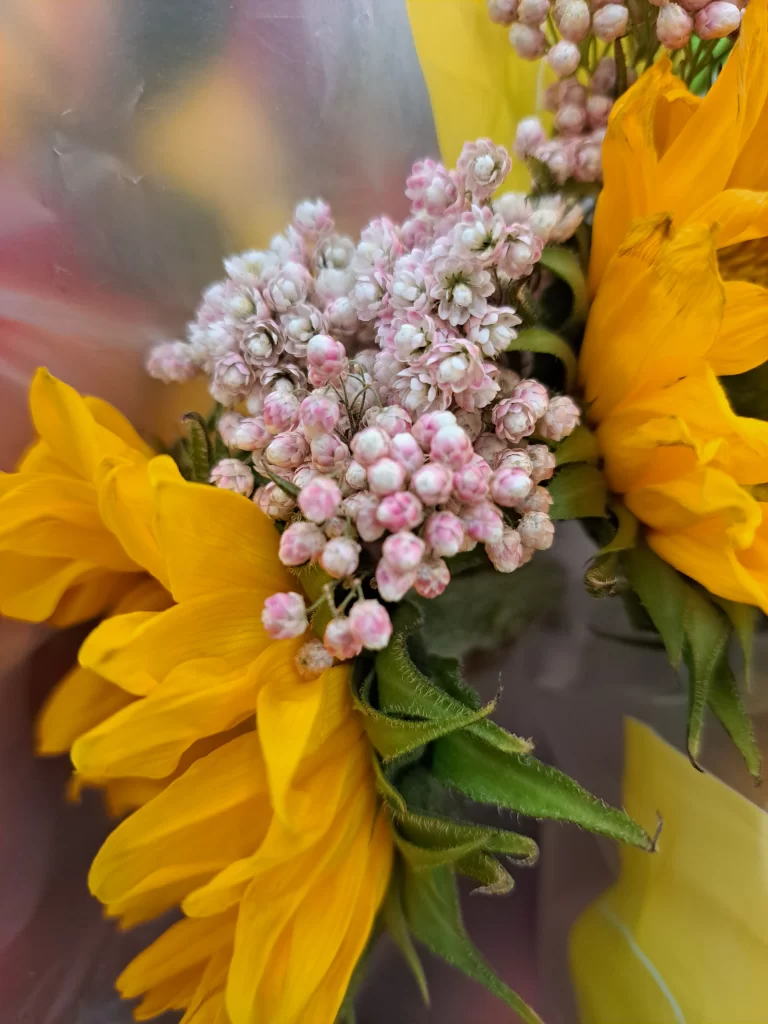
8. Baby’s breath
Another filler option, sprigs of baby’s breath are often woven into floral bouquets and they’re commonly paired with red roses. But baby’s breath is another no-no for pets!
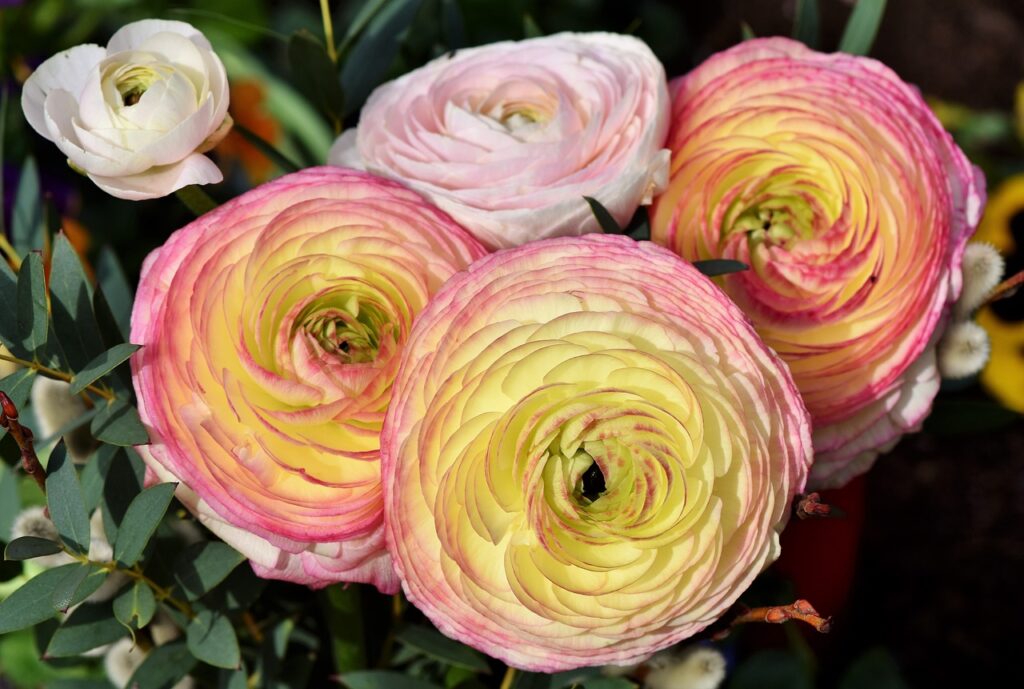
9. Ranunculus
Ranunculus are stunningly colorful flowers that are known for their thin petals that are reminiscent of crepe paper. These plants are also related to buttercups… but they aren’t pet-friendly! If you love the look of ranunculus, pet-approved roses have a similar vibe.
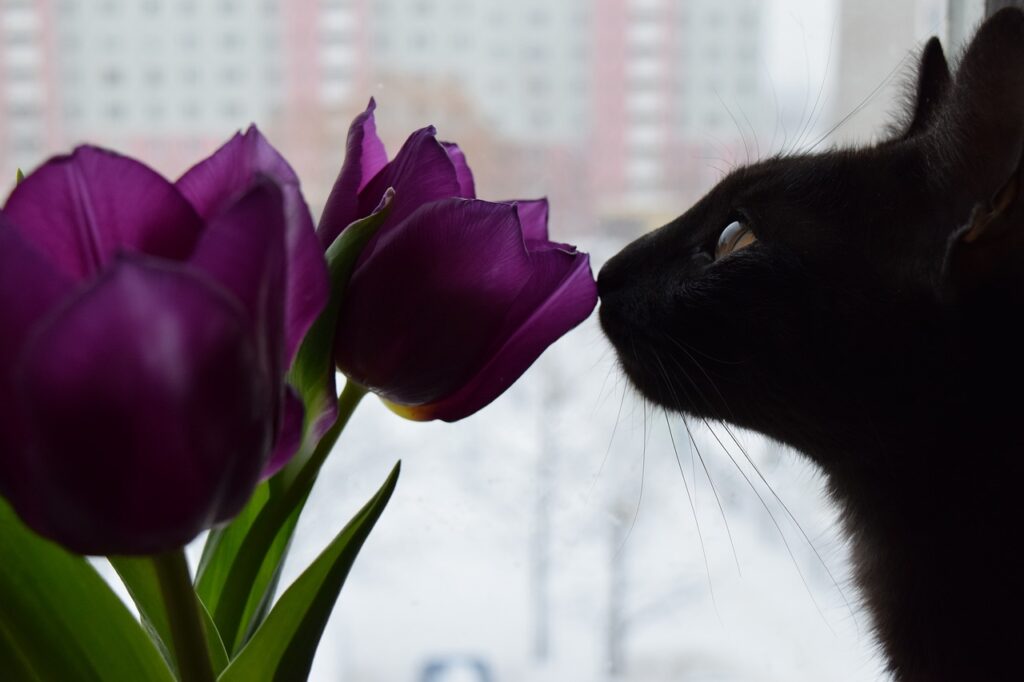
Frequently Asked Questions About Pet-Friendly Flowers and Plants
How do I keep pets away from my plants?
For safety, it’s best to avoid bringing toxic plants into your home if you have pets. But if you have plants or bouquets you want to protect from mischievous pets, try out deterrent sprays or move your flowers to a hard to reach location (like inside a glass cabinet).
How do I stop my cat from knocking over vases?
Deterrent sprays can keep cats from bothering plants, but you may also want to secure vases with museum wax. Museums use this product to keep antiques from moving around in displays, but it can also be used to prevent pets from disturbing your flower vases!
What plant is best for cats?
One way to keep cats from browsing in bouquets is to give friendly felines a plant of their very own. Catnip and cat grass are the usual choices for kitties and (with a bit of luck!) they may make your cats forget all about your bouquet!
